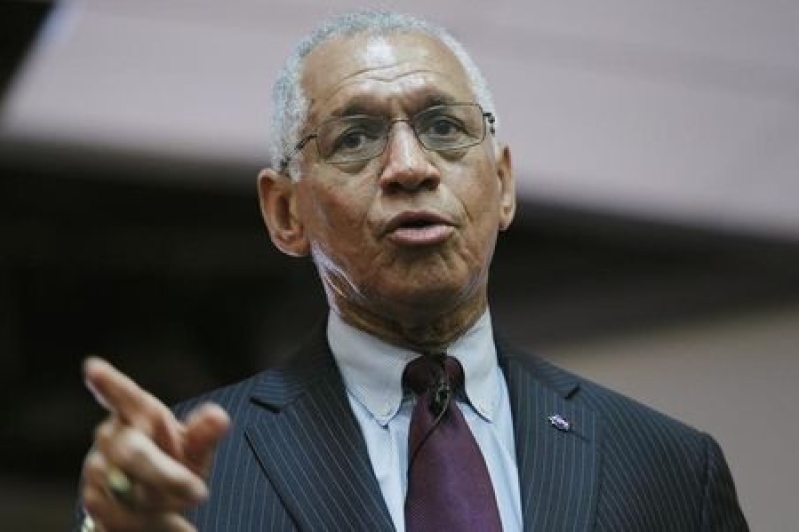
The United States should include China in its human space projects or face being left out of new ventures to send people beyond the International Space Station, NASA chief Charles Bolden said on Monday.
Since 2011, the U.S. space agency has been banned by Congress from collaborating with China, due to human rights issues and national security concerns.
China is not a member of the 15-nation partnership that owns and operates the station, a permanently staffed research laboratory that flies about 250 miles (400 km) above Earth, but Bolden says working China will be necessary in the future.
During a heads of space agencies panel at the International Astronautical Congress, he said he believed the ban was temporary.
"The reason I think that where we are today is temporary is because of a practical statement that we will find ourselves on the outside looking in, because everybody ... who has any hope of a human spaceflight program ... will go to whoever will fly their people," Bolden said.
His comments were echoed by China.
"We certainly hope that this temporary timeframe can be shortened," Xu Dazhe, administrator of the China National Space Agency, said through a translator. "China has no difficulties in our cooperation policies with other agencies."
China is the only other country besides the United States and Russia that have flown people in orbit. In addition to developing its own space station - so far at the prototype stage - , China has flown a series of robotic spacecraft to the moon. The last probe included a lander that touched down in December 2013.
Xu later told reporters China planned to launch a lunar sample return mission in 2017 and was looking for partners for a 2019 robotic excursion to the far side of the moon.
NASA is working on a heavy-lift rocket and capsule that can carry astronauts to the moon and eventually to Mars.
Collaborations with China could begin with very straightforward projects, such as deciding on a common system for docking spaceships, European Space Agency Director General Johann-Dietrich Woerner told reporters.
"What we have to do is to try not to be competitive. We should work together to tackle all different types of challenges in a common project," Woerner said.
(Reporting by Irene Klotz; Editing by Alison Williams)







